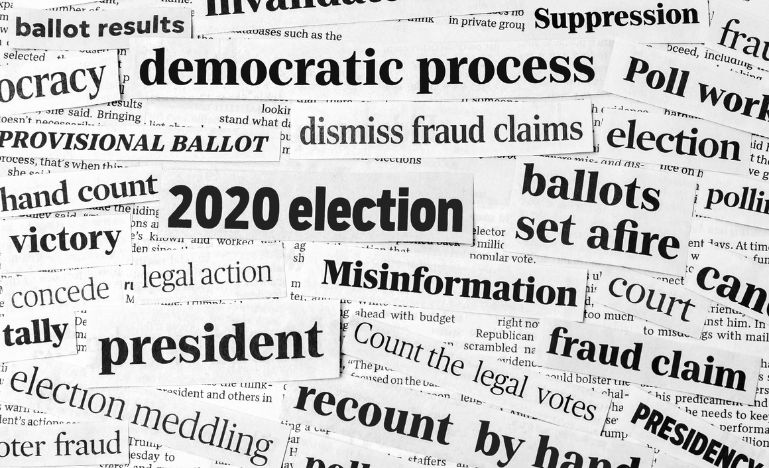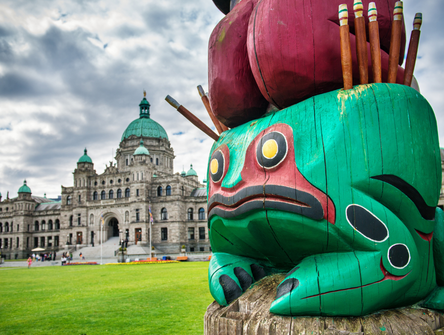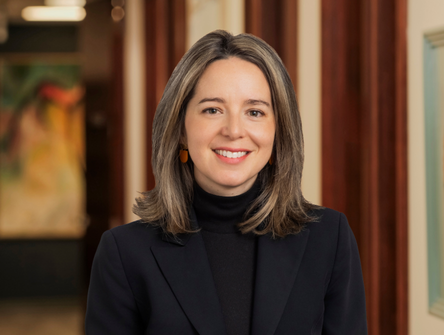Can the federal government ban the 'Big Lie' in elections?
Proposed amendments to the Canada Elections Act would make spreading misinformation aimed at the running or results of an election illegal

Given the preponderance of “Big Lie” claims in the United States that spread falsehoods about election fraud, it’s no surprise that among the federal government’s proposed amendments to the Canada Elections Act is a new offence for spreading misinformation aimed at affecting the results or disrupting the conduct of an election.
That includes false or misleading information about how elections are conducted, who can vote and how, and in particular, how votes are counted and the results.
In addition to measures to make voting easier with more eligible days to vote, and greater flexibility as to polling stations within the riding, Bill C-65 also changes privacy obligations for political parties, setting out new requirements for the protection of personal information, including a policy that addresses the collection, use, disclosure, retention, and disposal of it.
Guy Giorno, a partner at Fasken Martineau DuMoulin LLP in Toronto and Ottawa, and the former chief of staff to Prime Minister Stephen Harper, is concerned about the privacy provisions, as they only obligate parties to have a policy, and there is no enforcement mechanism if they don’t.
He also doesn’t like that enforcement will primarily be done by the Commissioner of Canada Elections and their staff rather than through the courts, even when it involves complicated criminal concepts such as conspiracy, counselling offences, and being a party to an offence.
His concern extends to the enforcement of the misinformation provisions.
“For the most part, those truth provisions relate to things that are mechanically about the electoral process, which presumably Elections Canada has some knowledge of,” Giorno says.
“But one always questions why we are using administrative enforcement and not a jury of your peers, not a court, not someone trained in the law, not a fair process? We’re going to have them deciding in a rough-hand way what is the truth.”
He would rather an institution and a decision-maker with a track record of fair and even-handed treatment of all communities in Canada be tasked with the responsibility, as he doesn’t believe that the Commission of Elections or its primary investigators — the RCMP — have that.
Connor Bildfell, an associate with McCarthy Tétrault LLP in Vancouver, was co-counsel in the 2021 case Canadian Constitution Foundation v Canada (Attorney General), which focused on misinformation provisions in the Act relating to prohibited statements about the character or conduct of candidates before or during an election. In that case, the court determined the provisions were unconstitutional because the legislation didn’t specify that the false statements were made knowingly.
A previous fix to the legislation required that false statements be made knowingly, adding a mens rea component to the offence, which has been replicated with the new provisions in Bill C-65.
“The government has taken the hint from the Ontario Superior Court that in order to have a constitutional prohibition, they have to prove that the individual knowingly conveyed false or misleading information,” Bildfell says.
In addition to the prohibitions on statements about the conduct of an election, Bill C-65 also prohibits false or misleading information in nomination papers.
“In every democratic society, you’ve got to grapple with the balance between freedom of expression and concerns about misinformation,” Bildfell says.
“If you want to have a robust dialogue about our political candidates, political issues, and political views, you have to have a robust commitment to freedom of expression.”
That said, misinformation and disinformation have the potential to do great harm to the electoral process.
“Having people who are knowingly attempting to interfere with the democratic process is a bad thing. What we see are courts and policy-makers in this ongoing dialogue about how we strike the right balance,” Bildfell says.
“Courts have sometimes issued decisions where they effectively say you went too far, that it’s not constitutionally permissible for a government to chill speech by creating a threat of being prosecuted under the Canada Elections Act for making a false statement because you didn’t know it was false.”
Understandably, political leaders are trying to respond to concerns about misinformation and disinformation while ensuring freedom of expression is protected but also guarding against intentional attempts to interfere with elections. In striving to strike the right balance, Bildfell says there’s always the possibility that provisions can be challenged as non-compliant with the Charter of Rights and Freedoms.
As serious as disinformation is, University of Waterloo professor Emmett Macfarlane says he was glad that the government didn’t try to enact broader policies targeting it.
“If these provisions apply to substantive policy issues like climate change or what have you, they would butt up against free expression issues in a much more direct way."
What the bill proscribes is relatively objective information narrowly focused on the integrity of elections, coupled with a requirement that people act with the intent to be false or misleading.
“I don’t think there are any serious constitutional concerns given the very high bar it would take to prosecute these particular offences,” Macfarlane says.
“Once you incorporate an intent requirement, any serious charge along these grounds is going to have to be well-rooted in a fairly concerted effort to mislead people about either the integrity of the election or vote suppression.”
Bildfell still has concerns about Section 91(1) of the Canada Elections Act, which replaced Section 92(1), which was declared unconstitutional without the knowledge requirement in Canadian Constitution Foundation v Canada.
“Even though Parliament has now imposed a knowledge requirement, there are still problems with that section this bill hasn’t remedied,” he says.
Bildfell cites vague categories of statements such as a false statement about the citizenship, place of birth, education, professional qualifications or group or association membership of a candidate, prospective candidate, party leader or public figure associated with the leader.
“A false statement about education—what does that mean,” he asks. “This new bill doesn’t address that.”
Instead, it leaves those categories of prohibited false statements untouched. Bildfell says that’s an issue, as uncertainty around what types of statements are prohibited will chill speech and ultimately affect the political process.
“We need a robust and full-throated discourse on political issues and political candidates, and leaving vagueness in the provisions can do harm to that process,” Bildfell says.
Misinformation prohibition is beneficial during something like the robocalls controversy from the 2011 federal election, where automated calls were made to voters in Guelph to direct them to the wrong polling location.
“That’s precisely the sort of thing that the provision is designed to target,” Bildfell says.
But could these misinformation or disinformation provisions apply to efforts by some political actors to de-legitimize the government formation process post-election?
Macfarlane doesn’t believe so, given that the bill does not mention government formation or the workings of the parliamentary system. Now, if someone tried to cast serious doubt by making factually incorrect statements about vote tabulations or even the certification of results, that could run afoul of the law.
“The people framing this bill were very cognizant of what we’re seeing in the United States with Donald Trump and his claims about electoral fraud,” Macfarlane says, pointing to the fact the former president has not only cast doubt but has blatantly lied about the validity of people’s votes, particular ballots, specific rules, and the counting of the results.
“This is very much where this bill seems to be targeted.”
However, while clearly false statements have been made about government formation and who gets to test the confidence of the House of Commons and when, this bill doesn’t cover that.
Macfarlane says it’s a somewhat interesting question whether it should. However, it’s a little trickier because people have every right to question the political legitimacy of different aspects of government formation.
“It gets problematic, and it leans into misinformation when they suggest there’s a constitutional illegitimacy to certain things.”
But even going back to the 2008 prorogation debate, he’s always tried to emphasize the distinction that some statements that the Harper government made about who gets to form government were patently false, while at the same time, some people were questioning the political legitimacy of that coalition — something he had no problem with. He says it’s a hard line to parse when considering restrictions on what people can and can’t say.
Drawing those lines isn’t easy, and Macfarlane says it goes to the heart of political speech.
“People can make constitutionally incorrect statements, but they should still validly and morally be able to say that certain parties in certain configurations should be allowed to form government. For the law to try and police that, even if some statements fall into the category of misinformation, it would be dicey.”


